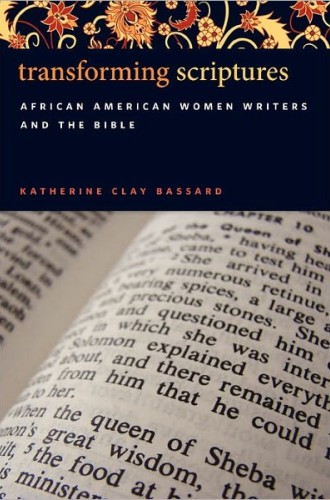Transforming Scriptures, by Katherine Clay Bassard
When the first thing one finds upon opening a book about the use of scripture by African-American women writers is the claim that the biblical tropes most illuminating of the topic are the story of Balaam's ass and the voice of the female speaker in the Song of Songs, one is forced to keep reading. In this her second book, Katherine Clay Bassard, an associate professor of English at Virginia Commonwealth University, uses an eclectic approach to examine the use of biblical material by eight 19th- and 20th-century writers, including Harriet Jacobs, Zora Neale Hurston, Sherley Anne Williams and Nobel Prize–winner Toni Morrison, whose work continues into the present century.
"The single most influential discourse on Black Bible readers" has always been the use of the Bible to defend the institution of slavery, Bassard explains. In the face of the powerful voices of domination that used the Bible as their justification, these women appropriated scriptural images in a way that undercut scripture's power to curse and turned the Bible into a source of liberation and blessing. Of course, because African Americans do not constitute a monolithic interpretive community, no single critical approach can treat these eight writers adequately—thus Bassard's eclecticism.
The story of Balaam's donkey was used in the racial discourse of the 19th century to demean educated blacks. But it was also used to defend women preachers. One commentator challenged, "If an ass reprove Balaam, and a barn-door fowl reprove Peter, why should not a woman reprove sin?" In response to this comparison, a woman who had been a slave was heard to remark, "May be a speaking woman is like an ass—but I can tell you one thing; the ass seen the angel when Balaam didn't."




